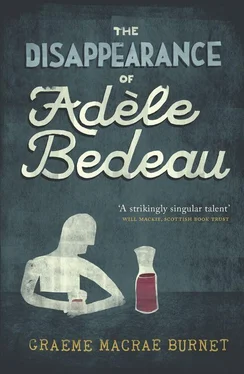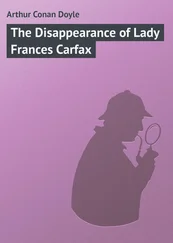Gaspard-Moreau prepared a new edition of the novel with an afterword by Chabrol to tie in with the film’s release. The film was a far greater critical and commercial success than the original novel had ever been and, aside from some minor changes, is a largely faithful adaptation, with the Saint-Louis setting impeccably realised by Chabrol. Predictably, Brunet hated it. Following a specially arranged screening at Gaumont’s headquarters in Paris, he locked himself in a toilet cubicle and could be heard sobbing loudly for fifteen minutes. In addition to the narrative changes, he felt that Manfred Baumann had been portrayed as a somewhat comic and pathetic figure. It was the reaction of a naive young man from the provinces who too closely identified with the protagonist of his book. It was not a fictional character he was watching on screen, but a projection of himself. Eventually, it was Chabrol himself who persuaded Brunet to emerge from the cubicle. The two men went to a nearby café and the director managed to convince him that he had not intended to ridicule his protagonist — only to humanise him somewhat. The cinema audience, he told Brunet, was not as sophisticated as his literary readership — they required a little sugar in their coffee.
Brunet was sufficiently placated to attend the premiere. In order to capitalise on the attendant publicity, his publishers put Brunet up in a hotel on Boulevard St Germain for a month or so. He was subjected to numerous interviews and, under strict instructions from his publisher, he kept his reservations about the film to himself. This was to be the only significant period of his life that Brunet spent away from Saint-Louis. He appeared to revel in the attention. For the first time, people wanted to be in his company and to listen to what he had to say. And if he behaved eccentrically…well, he was a writer — it was only to be expected. What he did find hard to deal with, however, was the constant stream of questions about his next book. In Paris, he discovered, everyone had a project on the go, or more likely a whole slate of projects in various states of development. Brunet took to enigmatically deflecting such queries by saying that he preferred not to discuss his work before it was completed, a strategy which only served to increase speculation.
After the premiere, a small party of cast and crew went for a late supper at a restaurant in the Latin Quarter. Some members of the cast, who were all too aware of Brunet’s reaction to the film, spent much of the evening earnestly questioning him about his book, one or two of them promising to join him sometime for lunch at the Restaurant de la Cloche. Brunet was, of course, quite flattered by their attentions.
In all he spent about six weeks in Paris. He seemed to enjoy his flirtation with celebrity and the company of the other writers and actors he met through Chabrol. He telephoned his mother every day, however, and these conversations often left him feeling morose. She complained of missing him and told him that his absence left her drained of all energy. Both Chabrol and his editor at Gaspard-Moreau, Georges Pires, tried to persuade him to move to Paris, arguing that it would be more conducive to his writing. Brunet was tempted, but in the end his mother won out and he returned home.
After his sojourn in the capital, Saint-Louis must have seemed drearier than ever. The royalties from the sales of his novel allowed him to give up his job at the insurance office and concentrate on producing a second novel, for which his publisher had now paid an advance. Georges Pires telephoned regularly for progress reports. At first, Brunet spoke enthusiastically about his new project, but deadline after deadline passed and eventually Pires lost patience, telling him simply to get in touch when he had something to show him. Having given up his job, Brunet’s days and weeks lacked structure. He lacked the self-discipline to follow a regular work schedule. He stayed in bed into the afternoon and then wandered from bar to bar until it was time to return for dinner. Ironically, the Restaurant de la Cloche was now off-limits. Many of the regular customers had by then read his book and did not take kindly to the way they had been depicted. Nor, in general, did the people of Saint-Louis approve of the portrayal of their town as a nondescript backwater. Rather than making him a local celebrity, Brunet’s novel had made him an outcast. The last two years of his life were uneventful. He occasionally managed a short burst of activity, but he was unable to sustain it. He never sent a single page to Georges Pires. Then, on 24 August 1992, he went to the railway station in Saint-Louis and threw himself in front of the 17.35 to Strasbourg.
His death merited a mere two sentences in L’Alsace :
The novelist Raymond Brunet, 38, of Saint-Louis yesterday threw himself under a train. He is survived by his mother, Marie.
He left no note. The desk in his father’s study was entirely empty. Clearly, Brunet had prepared the way for his suicide by destroying his notebooks. As is often the case with such incidents, no one who knew him had any inkling of his state of mind. Raymond Brunet was not in the habit of unburdening himself and even if he had been, it is hard to imagine to whom he would have spoken. Throughout his life he found it impossible to form the kind of relationships, either passing or profound, which come naturally to most people. It would be futile to speculate on whether he suffered from a diagnosable mental condition — we shall never know. The tragedy is that, as the short period he spent in Paris proved, he was capable of happiness. Had he found the courage to leave Saint-Louis, his life might well have turned out differently. And we might have more than one Raymond Brunet novel to enjoy.
As it is, we have The Disappearance of Adèle Bedeau . It is not for a translator to offer a critique. Those who are making their first acquaintance with the novel deserve to do so unencumbered by the opinions of others. However, one thing is worth making clear — while there are many parallels between the novel and the life of Raymond Brunet, The Disappearance of Adèle Bedeau is a work of fiction. The Restaurant de la Cloche and Saint-Louis itself are exactly are they are described in the novel (and remarkably unchanged) and a few of the characters are clearly based upon real people. The events of the novel, however, are entirely invented. Brunet became tetchy when interviewers suggested that his novel was autobiographical, construing this as a slight upon his powers as a writer. In the preface to his autobiographical novel Pedigree , Georges Simenon wrote that ‘Everything is true while nothing is accurate’. It is as fitting a formulation for The Disappearance of Adèle Bedeau.
GMB, February 2014
I would like to express my deep gratitude to Victoria Evans for her support, encouragement and wise counsel throughout the writing of this novel.
Thanks also to David Archibald, Craig Hillsley, Sara Hunt, Sonia Hurel and Thomas Stofer for invaluable editorial advice. I would also like to acknowledge the support of the Scottish Book Trust through its New Writers Awards scheme.
Finally, this book would not have been written without the unstinting patience, love and understanding of my girlfriend, Jen Cunnion. Thank you.
‘This intriguing debut is written with the kind of subtlety and expertise that draws you in from the opening paragraph. A strikingly singular talent, Graeme Macrae Burnet blends a gripping story with compelling characters and surprising sweeps of the imagination. This is an accomplished, elegantly written and exciting first novel.’ — WILL MACKIE, Scottish Book Trust












